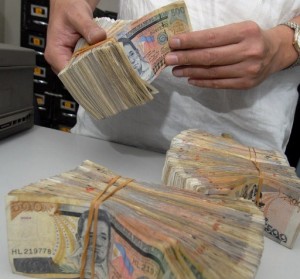Despite gains in the Philippines’ rank this year, the Department of Finance (DOF) on Monday lambasted the annual competitiveness report of Swiss business school IMD, claiming its methodology was “backward looking.”
In an economic bulletin, the DOF said IMD’s World Competitiveness Report “does not really know what it is measuring and it drives forward by looking at the rear view mirror.”
The DOF said IMD’s report covered only 63 countries while other similar competitiveness rankings, such as that of the World Economic Forum (WEF), included up to 140 countries.
The 2019 report of IMD think tank World Competitiveness Center ranked the Philippines 46th this year, up from 50th last year, citing the country’s skilled workforce, economic dynamism, cost-competitiveness, open and positive attitudes and high educational level of its people.
However, the Philippines placed second to the last among 13 Asia-Pacific countries included in the report.
Not only was the IMD report limited but it “also penalizes countries that collect more taxes to increase spending for infrastructure development and thus boost competitiveness,” the DOF said.
In describing the report’s “greater sin” of using a backward methodology, the DOF said it “uses the previous year’s GDP (gross domestic product) growth, for example, in assigning a score for this year. Thus, even if a country’s growth prospect is negative 8 percent for 2019 but if it was actually 8 percent in 2018, IMD would assign this country in question a high score for the 2019 report.”
Also, the DOF claimed the four sub-factors of the IMD competitiveness index—economic performance, government efficiency, business efficiency, and infrastructure—were “at best indicators of past performance and may not be indicative of future performance.” —BEN O. DE VERA


